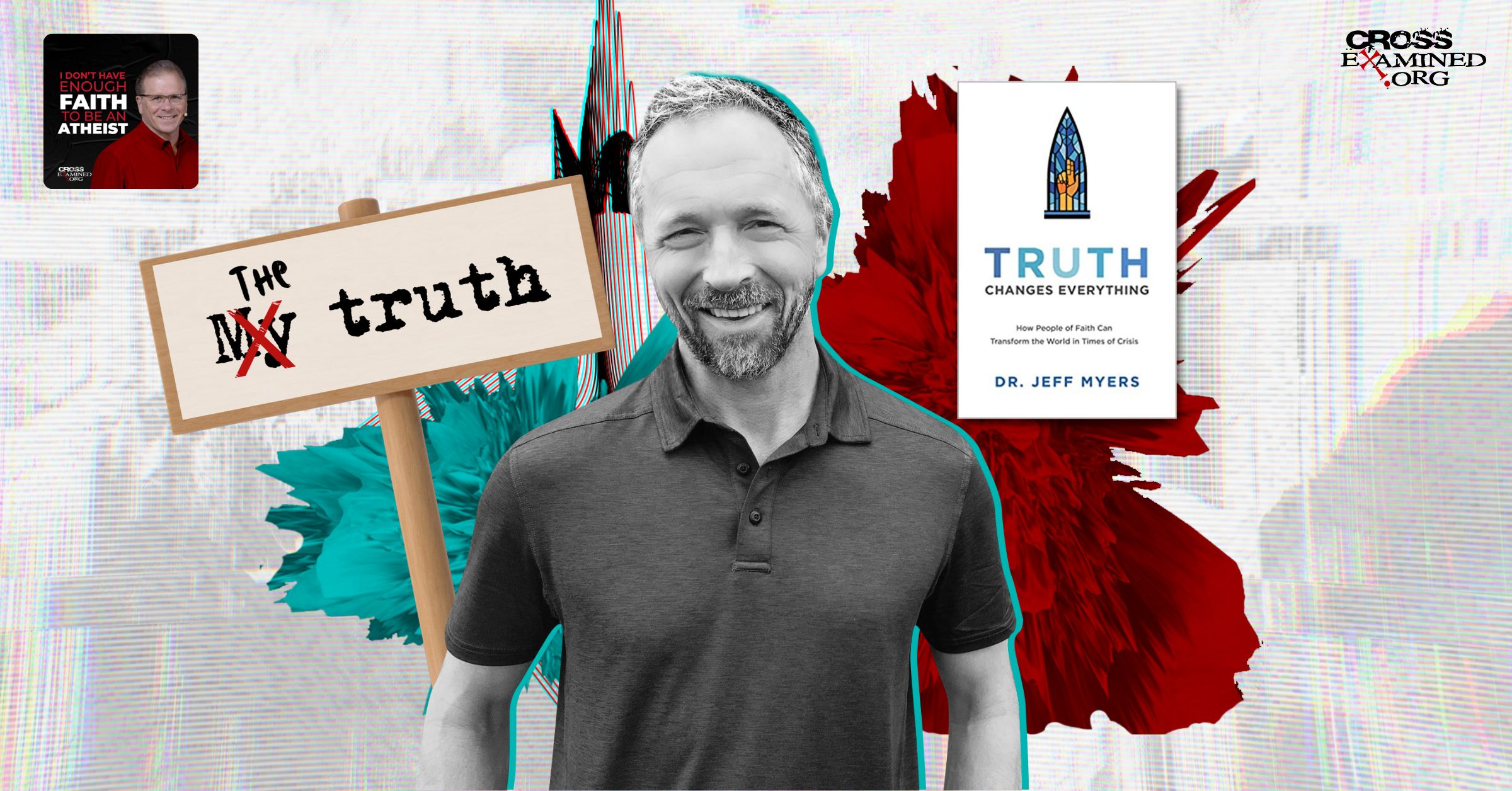The Church of Satan was started by Anton Lavey in 1966[i] as an atheistic religious organization focused on hedonism and lawful citizenry. Adherents to the Church of Satan claim not to believe in Satan or worship him but to strive for what they call “ethical egoism.” Ironically, Satan’s most effective tool against humanity is not convincing people to worship him, but to worship themselves in leu of the Almighty God.
Whether Lavey knew it or not, in effect, he did establish a church of Satan that worships the very thing Satan wishes it would. It matters not to Satan what people think of him, but if he can get people to believe in themselves and scoff at the idea of God then his mission is accomplished.
In the garden, Satan never asks Eve to worship him, he simply seeks to destroy Eve’s relationship with her creator.
It is not this obvious satanic movement that threatens the church of America, but a different, more insidious and pernicious Church of Satan that has snuck into the mainstream religious institutions of the day. The true Church of Satan hides in plain sight. Satan’s real strategy against the Bride of Christ is the same as his strategy in the garden and we must call it out for what it is lest we stand idly by as Adam did and watch people be deceived. You might think this overdramatic, but history and scripture indicate that it is not. The gates of Hell will not prevail against the church (Matthew 16:18[ii]), but Satan is building a bride for himself within what people consider to be the church in the West and, save for a few, it is rarely challenged with courage.
The church in America is quickly falling into apostacy. According to a recent study, 60% of self-described American Christians under the age of 40 believe that Jesus is not the only way of salvation.[iii] Which, one would think, would disqualify them from calling themselves Christians, at least that’s what Jesus would seem to indicate when he said no one can come to the Father except through him (John 14:6[iv]).
In many cases these mainline Christian denominations are not merely getting sin wrong, they are perverting the gospel by glorifying sin, reveling in it, and using scripture to double down on a gospel of affirmation rather than repentance and belief in Christ.
In the 2000s the Episcopalian church in America ordained the first transgender Priest and in 2021 the ELCA ordained their first transgender bishop[v].
In May of 2022 a United Methodist Church in Madison, Wisconsin held a Pride celebration event.[vi]
In December of 2021 a Lutheran church in Chicago had a pastor deliver a message to children dressed in Drag.[vii]
In August of 2022 the First Christian Church in Austin, Texas hosted a “family friendly” Drag Show for the community.[viii]
Most recently though, a United Methodist Church in Florida hosted an Atheist Drag Queen Pastor[ix] (yes, you read that right)[x] for their service, and, particularly, to share his story with the children in the church.
Romans 12:2 ("Do not conform to the pattern of this world, but be transformed by the renewing of your mind") is now a pro-drag queen Bible verse pic.twitter.com/ls2OfXJh3T
— Woke Preacher Clips (@WokePreacherTV) October 10, 2022
To the Christian the most alarming part of this video should not be the drag queen standing in the church but the “Pastor’s” use of scripture to justify Ms. Penny Cost’s lifestyle as godly:
“Well one of the things that I think is great about miss Penny Cost is that she reminds us that we follow a god who calls us to not conform to the things of this world. That we’re supposed to be transformed by the renewal of our minds, and that means that what I think today may have to change tomorrow if I continue to renew my mind. And it’s so cool that we serve a god that calls us to continue to grow and to continue to change into something new and to not be bound by the ways that the world confines us sometimes. That we are supposed to live differently.”
If one merely read the words spoken by this “Pastor” one might not see anything wrong with this simple directive towards children. He quotes scripture, directs them to live contrary to the world, and encourages them to live differently. That seems to be in line with historic Christian belief. This is, however, the oldest trick in the Satanic book. That is not hyperbole.
To use scripture in a way that justifies the pride of life and licentious behavior is the very tactic Satan used with Eve in the garden, and the very tactic he used again in the temptation of Jesus. Satan is not afraid to use scripture to get what he most desires. He prowls the sidelines waiting for an opportune moment to devour the weak, and he does just that with the misinterpretation and application of scripture (1 Peter 5:8[xi]). If the Devil can get people to believe they are saved through heretical use of scripture, only to embrace the wrong gospel, his digestion is complete and they are doomed.
Jesus hints at this reality himself when he says that not everyone who says to him, “Lord, Lord” will enter the kingdom of heaven (Matthew 7:21[xii]). There are many that will engage in mercy missions, philanthropy, clothing and feeding the poor, that will have embraced a false gospel that does not save. This false gospel is Satan’s go to weapon against the church. Satan does not need Anton Lavey to establish his church. He simply needs to get those that call themselves the church to buy into a gospel of lies and self-fulfillment.
A tail as old as time.
In the garden, the serpent misquotes God to challenge Eve to think only of herself and find fulfillment and hope in creation rather than the Creator (Genesis 3[xiii], Romans 1[xiv]). In Matthew 4:6[xv] we find Satan again using scripture to try to tempt Jesus in the wilderness. Satan quotes Psalm 91:11-12[xvi] seemingly to get Jesus to misapply scripture to inflate his own ego above the Father’s plan. Jesus, of course, does not fall for it.
John Piper puts it this way:
“Note well! Satan does not always try to ruin faith by saying, ‘The Bible isn’t true.’ He often tries to destroy our faith by affirming some passage and using it to lead us into disobedience.”[xvii]
If Satan used scripture to entice Eve, and again to seek to derail the redemptive work of God through Jesus, would he not use scripture to create for himself a church of ineffectual sin laden imposters? This is the spirit of antichrist, and it is taking the American church by storm.
The spirit of the antichrist affirms sin, encourages debasement, and blasphemes the name of Jesus (1 John 1:7, 2:18-22, 4:3). The video above accomplishes all these things in the space of fifty seconds. The Devil’s plans to subvert the church are obvious, but his appeal to the nature and pride of mankind blinds many to it. The misapplication and interpretation of Romans 12:1-2 gives away the Satanic game. We read in 1 John 2:15-24 just the opposite of what this pastor is speaking:
“15 Do not love the world nor the things in the world. If anyone loves the world, the love of the Father is not in him. 16 For all that is in the world, the lust of the flesh and the lust of the eyes and the boastful pride of life, is not from the Father, but is from the world. 17 The world is passing away, and also its lusts; but the one who does the will of God lives forever.
18 Children, it is the last hour; and just as you heard that antichrist is coming, even now many antichrists have appeared; from this we know that it is the last hour. 19 They went out from us, but they were not really of us; for if they had been of us, they would have remained with us; but they went out, so that it would be shown that they all are not of us.”
This is a sobering reminder that our battle is not against flesh and blood but against the dark forces of this world (Ephesians 6:12). It is no longer tenable to call this progressive movement in churches Christian. These are not progressive Christians, they are progressive antichristians. They hold on to a form of godliness yet deny its power (2 Timothy 3:1-5), they are swayed by and leading people astray into empty, deceitful philosophies according to human traditions and the elemental spirits of the world (Colossians 2:8), and they love what is evil and hate what is good (Romans 12:9).
The Satanic church is all around us and claiming Christ as their own in order to obfuscate the gospel. We must not acquiesce or give quarter to such blatant apostacy. Paul says we should have nothing to do with them (2 Timothy 3:5) and Jesus indicates that such men, claiming to be agents of the Lord, will experience an even harsher judgment than others (Luke 17:2).
I want to be clear, my quibble is not against those attracted by this false gospel. My heart breaks for them. The reason the Christian church’s response to such heresy ought to be swift and decisive is for them. Filled with mercy, patience, and grace (Jude 1:22-24). The question they are asking is a legitimate one: “How can I be happy, fulfilled, full of purpose?” The answer is there to be had and confused individuals must be met with love, understanding, encouragement, and most importantly, truth.
We must call these people to repentance; we must not allow them to glory in their sin and pervert the gospel. Winsomeness is not a tool to tolerate blasphemy but to attract those seeking answers. It is winsome to call out error and preach repentance in Christ (Romans 2:4).
The true Church is to be salt and light (Matthew 5:13-16). Salt preserves the godliness of the generations and light exposes the deeds of darkness (1 John 1).
We can give no quarter to those that would pervert the gospel of Jesus Christ. There is a time for boldness in the faith, and that time is now, and if we are ridiculed, persecuted, or derided for our faithfulness to the true gospel then we are in good company (Hebrews 11, Acts 5:42, 2 Timothy 3:11-12, Matthew 5:10-12).
We must start calling these types of progressive churches what they are, and we must not apologize, because it is true kindness to shed light on the deeds of darkness to beseech them to repent and return to the love they have lost (1 Corinthians 5:5, Revelation 2).
I think Kevin DeYoung put it well:
If everyone loves us now and Jesus judges us guilty later, it’s not worth it. And if everyone thinks we’re benighted and bigoted now and Jesus acquits us later, then so be it.
— Kevin DeYoung (@RevKevDeYoung) October 1, 2022
Stay strong. Fight the good fight, finish the course, and keep the faith.
(2 Timothy 4:7-8)
Footnotes
[i] https://www.britannica.com/biography/Anton-LaVey
[ii] https://www.biblegateway.com/passage/?search=Matthew+16%3A18&version=NET
[iii] https://www.christianpost.com/news/60-of-young-adults-say-jesus-isnt-the-only-way-to-salvation.html
[iv] https://www.biblegateway.com/passage/?search=John+14%3A6&version=NET
[v] https://en.wikipedia.org/wiki/Cameron_Partridge#:~:text=Cameron%20Partridge%20(born%201973)%20is,National%20Cathedral%20in%20Washington%2C%20D.C. –
[vi] https://madison365.com/sherman-church-to-celebrate-pride-month-with-pride-month-flag-raising-ceremony/
[vii] https://www.washingtonexaminer.com/news/lutheran-church-offers-drag-queen-prayer-time-to-children
[viii] https://www.houstonchronicle.com/neighborhood/katy/article/church-lgbtq-drag-shows-17395546.php
[ix] https://www.mspennycost.com/
[x] https://www.theblaze.com/news/drag-queen-pastor-god-is-nothing
[xi] https://www.biblegateway.com/passage/?search=1+Peter+5%3A8&version=NET
[xii] https://www.biblegateway.com/passage/?search=Matthew+7%3A21&version=NET
[xiii] https://www.biblegateway.com/passage/?search=Genesis+3&version=NET
[xiv] https://www.biblegateway.com/passage/?search=Romans+1&version=NET
[xv] https://www.biblegateway.com/passage/?search=Matthew+4%3A6&version=NET
[xvi] https://www.biblegateway.com/passage/?search=Psalm+91%3A11-12&version=NET
[xvii] https://www.desiringgod.org/articles/satans-bible-knowledge
Recommended resources related to the topic:
Is Morality Absolute or Relative? by Dr. Frank Turek DVD, Mp3 and Mp4
Another Gospel? by Alisa Childers (book)
_____________________________________________________________________________________________________________________________________________________
Josh Klein is a Pastor from Omaha, Nebraska with over a decade of ministry experience. He graduated with an MDiv from Sioux Falls Seminary and spends his spare time reading and engaging with current and past theological and cultural issues. He has been married for 12 years to Sharalee Klein and they have three young children.
Original Blog Source: https://bit.ly/3X2WW7X










